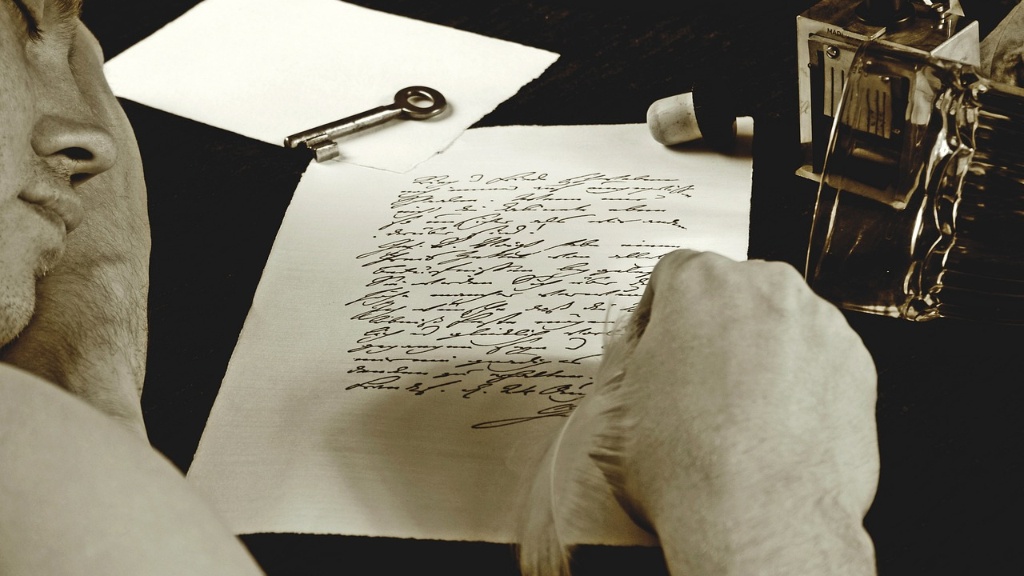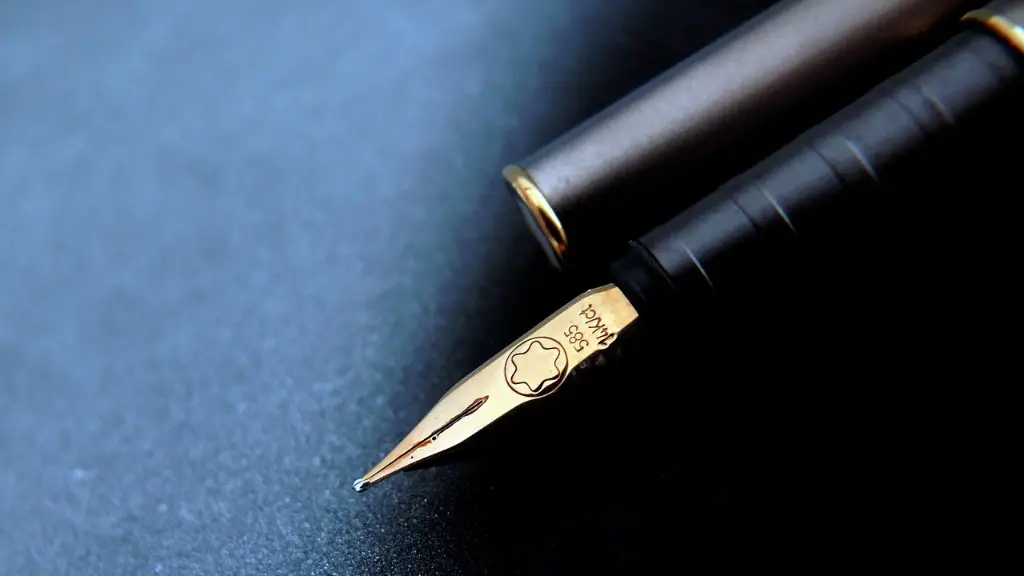Why did Langston Hughes write Dreams?
Dreams have much greater importance in poetry, prose and playschemes than simply those of falling asleep and wondering through the idle subconscious. Dreams bring to life an enchantment unique to the memories and musings of a given person. While dreams are regularly used as a tool to explore emotions, Langston Hughes had a much bigger purpose for dreams in his work.
Hughes was an African American playwright and poet in the 20th century who used his art as an outlet for sociopolitical dialogue. He paid particular attention to the implications of dreams as they took on this purpose and drove his poetry to discuss social issues of the time. His dreamscapes were not simply reflective of his own emotions and perspectives, but they were also meant to challenge the social norms of the day.
Hughes himself was incredibly inspired by the power of his dreams and believed them to be one of the most influential sources of energy and inspiration in his work. He pursued themes like perseverance, justice, and freedom through his dreamy, yet powerful words. Hughes’s work discussed not only his personal view of the world, but in doing so, he echoed the questions and frustrations of an entire generation.
As a part of the Harlem Renaissance, Langston Hughes used his dreams to attempt to bridge the gap between the black and white communities and promote racialequality. His writing was unique amongst other politically driven pieces of the era in that it was continuously surrounded by a sense of hope and optimism. He connected his readers to his contribution to American literature through his dream-inspired works, as well as his “hope that something might come of it—not just for himself, but also for African-Americans.
Dreams, as they are explored in Langston Hughes’s writings, are powerful and ubiquitous reflections of the life around us. They are revelatory of our most deeply rooted emotions and hopes that are the product of both the world outside, and of the one within us. In dreaming, Hughes captured in poetry the dreams of an entire generation.
The Role of Struggle
Langston Hughes was a firm believer in the idea of power through struggle, and this belief was a major factor for why he chose to write about dreams. He looked at the path of struggle as being a positive, necessary way to gain strength and understanding of ones beliefs.
Hughes was well versed in African American cultural issues and wanted to expose others to the hardships faced by African American citizens. He believed that putting a spotlight on the issues and providing an emotional response through the use of metaphor could help raise the awareness of those issues. Using dreams as a medium, Hughes was able to create this emotional response while also still maintaining a sense of hope.
This idea of struggle as a part of the dream-writing process was common in Langston Hughes’s writing. For example, his poem, “Dream Deferred”, speaks to the idea of struggle on many levels, both physical and emotional. The symbolism of the dream’s deferred action is presented as a metaphor for the struggles faced by African American citizens. By encouraging readers to reflect on their own struggles, Hughes was able to provide a level of comfort and understanding to the situation of his people.
The use of dreams by Langston Hughes brought a unique and powerful perspective to the discussion of African American issues. He used his dreams to provide an emotional response to the struggles faced by his people and shape the discussion of African American culture.
Using Symbolism to Explore Dreams
Dreams, as presented in Langston Hughes’s work, serve as a way to explore deeper, more complicated issues. Hughes often used symbolism and metaphor as a tool to explore the emotions and ideas that accompany dreams. His use of dreams in much of his work allowed him to explore complex emotions and perspectives in a way that could be better understood by those around him.
In “Dreams”, a poem by Langston Hughes, he speaks to the idea of dreams being the only way for individuals to reach their desired goals. The symbolism of the poem serves to help explore the power of dreams and the potential for them to guide individuals toward a better life. The imagery found in the poem also gives insight into the themes of freedom and justice that Langston Hughes explored in much of his work.
The use of symbolism in Langston Hughes’s work serves not only as a tool to explore deeper issues, but also as a way to engage the reader. By making the reader a part of the symbolic journey, Langston Hughes was able to create an emotional connection with the reader and make them a part of the writing experience.
The use of symbolism was also a way for Langston Hughes to explore complex issues while still upholding a sense of optimism and hope. The use of symbolic metaphors and imagery in Langston Hughes’s work allowed him to explore the darker sides of life while still presenting the possibility for a better future.
Exploring Themes of Inequality
Langston Hughes believed that all people should have access to the same opportunities in life, and he used his dream-inspired writing to explore the implications of racism and other forms of inequality. He wrote about ideas of justice and freedom and the implications of a society where these things are not present. He used dreams as a way to symbolize the dreams and hopes of African American citizens and to explore the implications of their struggle for equality.
In “I Too, Sing America”, Hughes speaks directly to the idea of inequality in American society and the struggle of the African American community to gain access to the same rights and opportunities as their white counterparts. He uses dreams to show the potential of unlocking those hopes and aspirations that African Americans were denied.
In “Dream Variations”, Langston Hughes speaks to the idea of the power of dreams in transforming the realities of life. By dreaming, individuals are able to escape from the constraints of an oppressive society and gain the freedom of their imagination. Langston Hughes believed that by using his dreams to explore themes of inequality, he could help expose issues of power and give insight and hope to his readers.
Langston Hughes was not only a dreamer, but he was also a believer in the power of dreams in sparking social change. His use of dreams in his work allowed him to explore the questions and implications of inequality and provide a sense of hope and comfort to his audience.
Challenging Social Norms
Langston Hughes was not one to simply accept the social norms of his day, and instead used his dreams as a tool to challenge them. He sought to expose underlying issues of racism and oppression and to show the potential of using dreams to make change.
He spoke directly to the power of dreams in creating a sense of unity between people. By dreaming, individuals could understand each other’s struggles and come together to create a sense of shared power and purpose.
In his poem, “Dreams”, Hughes speaks to the idea of the potential for a more unified society through dreaming. He states that “Hold fast to dreams, for if dreams die, life is a broken-winged bird that cannot fly.” This idea of the power of dreams to create a sense of unity is a recurring theme in his work.
Langston Hughes was a powerful writer who used his dreams to explore and challenge the social norms of his day. Through his dream-inspired writing, he was able to not only expose underlying issues of racism and inequality, but also to bring hope and comfort to his readers.
Exploring Identity
Langston Hughes was passionate about exploring identity and the idea of dreams being a reflection of one’s true self. He used dreams to explore the idea of personal identity and to challenge the oppressive nature of his society.
In “Dream Boogie”, Langston Hughes speaks directly to the idea of dreams being a source of personal identity. He challenges his readers to explore their identity through dreaming and to embrace their uniqueness and potential. By dreaming, individuals can gain insight into their true selves and understand the power of their dreams to make change.
Hughes often explored the idea of identity in terms of race, gender, and class. He believed that individuals could use their dreams to push back against their oppressive society and find a sense of empowerment and liberation. He saw dreams as a way to bring individuals from different backgrounds together to create a better world. In challenging the oppressive norms of his day, Langston Hughes sought to unite people through their dreams and create a collective power.
Langston Hughes used dreams as a tool to explore identity and to challenge the oppressive nature of his society. His dream-inspired writing spoke to the potential of individuals to look inward and use their dreams to make change.
Understanding the Powers of Dreams
Langston Hughes was a powerful poet who used his dreamscapes to explore deeply rooted issues of power and oppression. His writing spoke to the potential of dreams to bring together individuals from different backgrounds, to challenge the oppressive norms of society, and to understand one’s true identity. He saw dreams as a powerful source of energy and believed them to be one of the most influential forces in his work.
In understanding the powers of dreams, Hughes both explored his own emotions and perspectives and echoed the frustrations of an entire generation. He sought to expose underlying issues of racism and oppression and to show potential for a better future. Through the use of his dreams in his work, Hughes was able to connect to his readers on an emotional and powerful level and create a sense of unity and common purpose.
The power of dreaming was not lost on Hughes and he believed in the potential of dreams to shape the discussion of African American culture. His dream-inspired works brought awareness to the issues that African Americans were facing and provided a sense of hope and optimism. He looked to his dreams and sought to provide an emotional response and the possibility of a better future.





